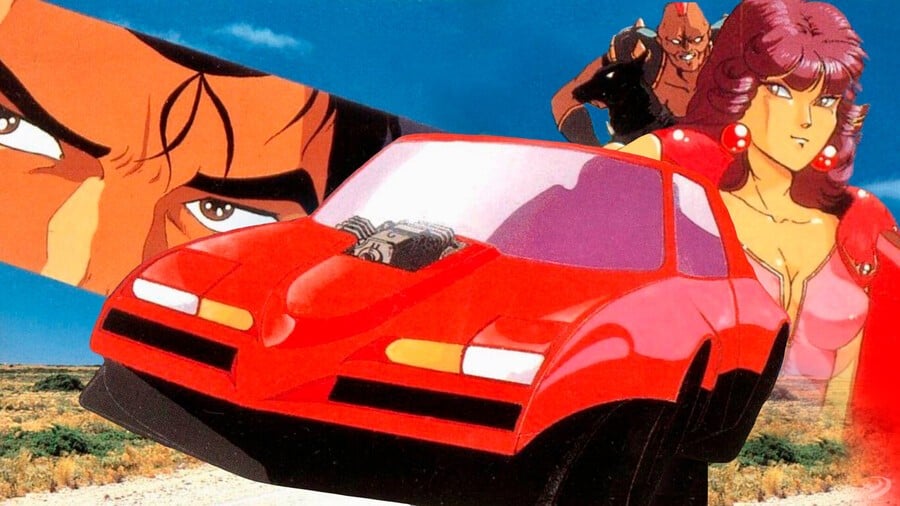
The Japanese Game Preservation Society has released its annual newsletter detailing the NPO's activities - of note is that after two years of research, it has begun doing the first data migration of LaserDisc games. This is exciting news since it could lead to certain rare games finally being more accessible.
Lewis Packwood previously covered LaserDisc gaming for us, while site contributor Ashley Day wrote about LaserDisc games on the MSX. Two obvious LaserDisc examples are interactive movies such as Dragon's Lair and Road Avenger, arcade games which saw home conversions to CD-based systems. But as the above articles allude to, there was also LaserDisc hardware and games exclusively for home use, and some of the games didn't have conversions elsewhere.
To give two examples: Star Fighters is a tactical space simulation for MSX, described as a primitive Advance Wars. While for the LaserActive Sega Mega LD format there was Don Quixote: A Dream in Seven Crystals. This is not to be confused with the LaserDisc game Super Don Quix-ote from 1984; Seven Crystals is an RPG, with towns, maps, and random battles! (Given that some people confuse the two, it's also perhaps worth pointing out that while LaserDisc is a storage medium, like CD or DVD, LaserActive is a specific piece of hardware for the home, like the Mega CD or PlayStation.)
Sadly, LaserDisc emulation is still patchy. Arcade games are supported under DAPHNE, and MSX games under openMSX, but there is currently no way to emulate games for the Pioneer LaserActive. Meaning you cannot play Seven Crystals without shelling out for an expensive LaserActive system plus the Sega Mega LD add-on plus the game itself. All LaserDiscs are also prone to deterioration, especially since some are over 40 years old now. According to the GPS, the oldest known LaserDisc game is Quarter Horse, produced by Electro-sport in 1982.
The problem with the preservation of LaserDiscs is the lack of consensus on the proper standards for doing so. After two years of researching different backup methods, the GPS has decided on the Domesday86 Project device and its associated application.
As they explain:
The first avenue of research was to determine what level of preservation could be achieved. The LD drive recommended for use by the project proved difficult to obtain as it was not sold in Japan. An overseas unit was obtained and we were able to identify identical hardware that was available domestically. The Japanese version was a professional grade device, making it also hard to find within Japan, but we eventually found one in good condition. After checking the decoding of the reference disc, it was clear that a fairly high quality capture was possible.
The organisation's aim isn't simply backing up the video footage but capturing and preserving all of the data contained within - including game data. Using a high sampling rate means the data set for these initial captures ended up huge - 8 terabytes per LaserDisc!
As they explain:
The raw data can then be passed through the LD-decode application. By doing so, we can decode not just the analogue video but any digital data and audio tracks as well. Based on our results, we determined that the drive we obtained had no problems with read quality, and we began to capture some game software. We found that analog video and audio-only LDs were not a problem, so we next tried Mega LDs and LD-ROM² software intended for LaserActive hardware. Since the program data is stored in the PCM data track, it will be necessary to develop special techniques to read this. We are currently investigating.
The LaserActive launched in 1993, making it over 30 years old now. It's taken a while, but this is an exciting development. Once the data is preserved there is no risk of it being lost, and further work can be done at leisure. Meaning someday the system-exclusive games could be freed from their native hardware. Granted, there were not a huge number of games for the Sega Mega LD and NEC LD-ROM² add-ons, but each has its own unique and exclusive titles worth investigating.
We contacted Joseph Redon of the GPS directly for his final thoughts:
I think we're the first organisation to connect a LaserActive to Domesday successfully. After reviewing the results we're happy to make our techniques open source so everyone can benefit. I want to let the world know that it works, and encourage people to dump the data. Because we need several copies, at least three, to merge them and get one back-up of good quality. So this project needs international cooperation - we won't buy three sets of all the games, we already have one full set and it was horribly expensive.
